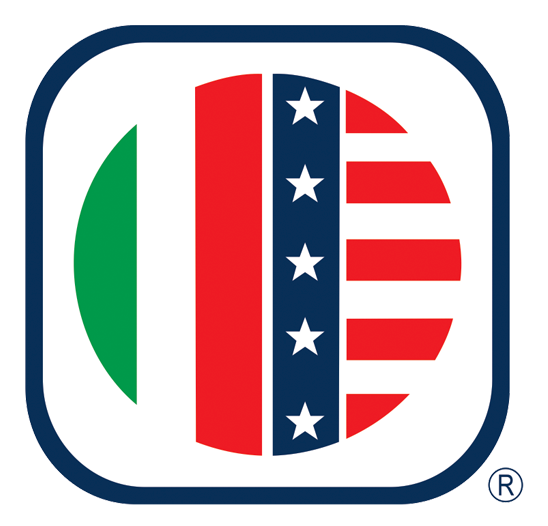The Origins of 12 Silly-Sounding Compound Words

By Lucas Reilly │Mental Floss│4 min
Some compound words make perfect sense. Bedbugs? They’re bugs that live on your bed (among other places). Railroad? It’s a road constructed from rails. Waterfall? It’s where the water … falls. The list goes on: afternoon, earthquake, popcorn, graveyard, airport—all of these words just work.
:extract_focal()/https%3A%2F%2Fimages2.minutemediacdn.com%2Fimage%2Fupload%2Fc_crop%2Ch_2172%2Cw_3864%2Cx_0%2Cy_180%2Ff_auto%2Cq_auto%2Cw_1100%2Fv1554738582%2Fshape%2Fmentalfloss%2Fistock-186586564.jpg)
Other compound words … not so much. A nightmare is not a nocturnal horse. An earmark is not some kind of head tattoo. And who in the world knows what a hodgepodge is? We consulted the holy book of English etymology—the Oxford English Dictionary (OED)—to get some answers.
1. HOPSCOTCH
The game has nothing to do with little kids skipping over glasses of Johnnie Walker. Back in the 17th century, the word scotch could be used to describe a gash, score, or line. While that usage is now obsolete, it was preserved in the children’s game—when you play hopscotch, you’re literally hopping over scotches.
2. COBWEB
The word sounds less corny when you consider that, in the original Middle English, it was spelled coppeweb—and that back in the 14th century, coppe or cop was a synonym for “spider.” (In fact, the etymon cob wouldn’t be associated with corn for another 300 or 400 years.)
3. KIDNAP
Kidnap is a relic of an old spelling battle (and has nothing to do with child abductors taking a snooze). Back in the 17th century, both nab and nap meant “to snatch or seize” something. Nab eventually won the semantic battle—but the old spelling remains ossified here.
4. SCAPEGOAT
According to Leviticus, two goats were chosen on the Day of Atonement: One was sacrificed, and the second was symbolically burdened with the people’s sins and sent into the wilderness. In the 1300s, scape meant “escape.” Thus, an individual who assumes blame on behalf of the many is like the symbolic “escaped goat.”
5. DOUGHNUT
According to the OED, starting in the 1770s, the word nut could be used to describe “a small rounded biscuit or cake.” In fact, the first “doughnuts” didn’t resemble the circles of fried goodness we know today. They resembled little balls—what would today be called a “doughnut hole.”
6. WEDLOCK
The word has nothing to do with “locking” couples together. Rather, wedlock is a fascinating relic of Old English. Centuries ago, many words ended with the suffix -lāc, which helped denote an action or state of being. (For example, the word brewing—that is, the “state of being brewed”—used to be spelled brēowlāc). Similarly, in the 12th-century the word wedlāc or wedlayk denoted the “the state of being wed.”
7. HONEYMOON
In the 16th century, honeymoon had nothing to do with a post-marriage vacation—rather, it simply denoted the first month of marriage. At the time, honey was commonly used to mean “sweetheart” and moon could be used to describe the passage of time, usually a month. In other words, honeymoon literally meant “sweetheart’s month.” (Though the OED offers more cynical alternative explanations, suggesting that new love waned like the moon, or lasted no longer than a month.)
8. HODGEPODGE
If you don’t know what a hodge or podge is, join the club: The word is a corruption of the 15th century word hotchpotch, which itself is a corruption of hotchpot, hochepoche, or hotpotch. In Anglo-Norman, a hochepot was a blended stew of minced beef or goose and veggies.
9. EARMARK
Today we typically use earmark to denote money that’s been set aside for a particular purpose, but back in the early 1500s, earmark was far more literal: Farmers would mark the ears of their sheep as proof of ownership. Over the following two centuries, the meaning of earmarking would broaden to denote the act of “[marking out or designating] for a particular role, purpose, or fate.”
10. EGGPLANT
In the 1760s, the word egg-plant made far more sense, because it was used to describe a white-fruited type of tomato, or Solanum esculentum, that resembled … an egg. About a century later, the word began applying to the purple-fruited (and not-so-eggy) aubergine.
11. HOGWASH
In the late 1500s, the word wash—derived from the German wäsch—was also used to denote a type of kitchen or brewery swill that no human dared to drink. (Hogwash, specifically, was a swill so bad that it would be thrown out for the swine.) Eventually, the word for this rotten, pig-quality hootch took on a more colorful meaning to denote rotten, pig-quality ideas.
12. PIECEMEAL
The meal in piecemeal has nothing to do with eating lunch; it’s an obsolete suffix. Back in the 14th century (and earlier), the suffix mele, mǣl, or mǣlum was used to denote a “measure or quantity taken at one time,” according to the OED. Gēarmǣlum meant “year by year,” stæpmǣlum meant “step by step,” and pecemele meant—and still means—“piece by piece.”



